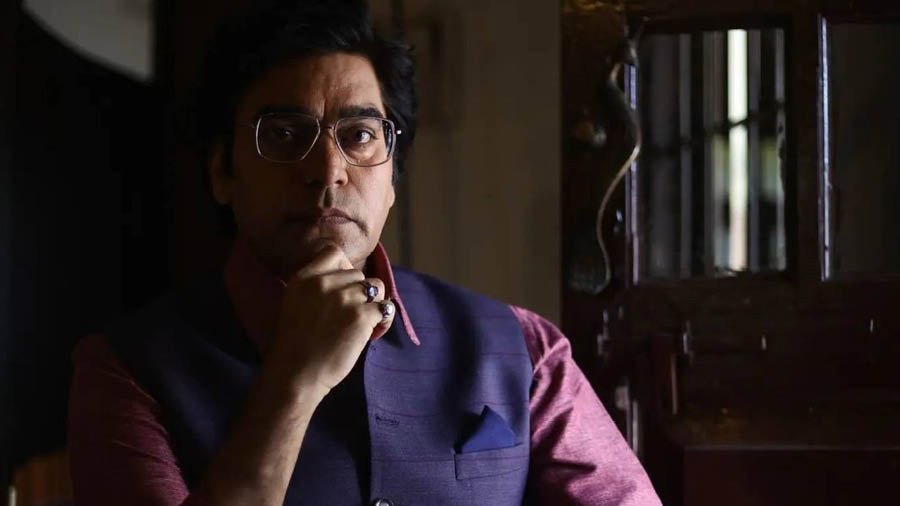In his almost three-decade-long career, Ashutosh Rana has acted not just in Hindi but also in Tamil, Telugu, Bengali, Marathi and Haryanvi films. Apart from Pathaan, Rana can also be seen in Anubhav Sinha’s Bheed, which released at theatres on March 24. Rana tells us what he learnt from the pandemic, why he took up Bheed and why he prefers being an artist rather than a performer.
You have been doing Pathaan, Samrat Prithviraj, War, Simmba, and at the same time Aranyak, Khakee, Pagglait, Sonchiriya and Bheed. How do you choose such a variety of characters?
Ashutosh Rana: Every actor is looking to play diverse characters. And when someone takes notice of those characters, half of an actor’s quest is already accomplished. I was looking out for characters like the ones I played in the films you just mentioned.
I choose roles by whether I am a kalakaar (artist) or an adakaar (performer). If you are a performer, you have to repeat a particular style of yours. But if you are an artist, then you have to destroy what you did in your previous work. So, the performer is about maintaining and the artist is about destroying. I like to destroy ‘my self’ and play the character. That’s how variety is achieved.
What compelled you to take up Anubhav Sinha’s Bheed?
Ashutosh Rana: The Covid pandemic was the biggest tragedy in the last 100 years. Man wanted the world to be at his feet but this tragedy didn’t allow him to even step out of his house. It was nature’s way of saying that it won’t allow human interference because it needed to heal itself.
A person always wants to become vishesh (special) from shesh (remnant). But after such a tragedy, you don’t stay vishesh, you become shesh. People lost their individuality and were reduced to a bheed (crowd) during Covid. I felt that I should become a part of this film because somewhere all of us have reached here today by overcoming the challenges faced during the pandemic.
I play Inspector Yadav in Bheed. He is a law-abiding police officer. He is the SHO at the place where the story of this film takes place. He wants to follow the law because he works for it. But he knows that he has to also resolve the situation at hand. So, he is stuck in that conflict.
You worked with Anubhav Sinha in Mulk, which was the beginning of his new phase as a director. What is it like being directed by him?
Ashutosh Rana: He is a remarkable writer and director. The best thing about working with him is that you don’t realise how quickly you have completed your work. There’s joy in working with him. My character in Bheed is vastly different from my character in Mulk. Working with Anubhav is a pleasant anubhav (experience) for actors like me. He believes in redefining things.
What did you learn from those two years of the pandemic?
Ashutosh Rana: I learnt that we try to connect with the whole world but we fail to connect with ourselves. So, Covid was a blessing in disguise where nature told us to connect with ourselves before we try to connect with the rest of the world. And after connecting with yourself, connect with your family. Nature gave us the opportunity to turn our adverse situations into favourable ones. While we saw people who were fighting over everything, there were also the ones who wanted to have a dialogue. Everyone picked up whatever they wanted. I picked up the sentiments of dialogue and connection, not fighting.
What role does conviction play in portraying such varied characters?
Ashutosh Rana: Conviction is my primary thing. Fortunately, I have met directors who wanted to explore different characters with me. Otherwise, actors tend to get similar roles and slowly they get comfortable in the mould that they create for themselves. I decided to step out of my comfort zone. An airplane is safer on the ground but that’s not what it is made for. It is made to fly. If it stays on the ground, then it won’t get any respect. It’s important for an actor to step out of his comfort zone if he wants respect.
I feel blessed to have been able to play different characters. Is liye aap humari mimicry nahin kar sakte. (You won’t be able to mimic me because I have played characters that are very different from each other.)
Apart from Hindi, you have also acted in Telugu, Tamil and Kannada films…
Ashutosh Rana: I have done Marathi, Bengali and Haryanvi films too.
Every industry is going through a phase of its own. Do you really think one industry is overpowering the other? What is your take on the issue of north versus south films?
Ashutosh Rana: I act in different languages because I am an Indian actor. I believe that art is like the sun. The sun doesn’t discriminate between east, west, north and south; art doesn’t do that either. Art doesn’t have boundaries of regions or countries, art rules the hearts of people.
We can’t set boundaries for the sun, then why should we set boundaries for art? Yes, you can close your eyes and not see the sun. Similarly, there are practices going on of closing your eyes to certain arts. It’s an individual’s choice.
Some people try to create controversy out of the dialogue. And because controversies get sold easily and quickly, people think that there are only controversies happening everywhere.
Pathaan’s success is the biggest example. People who believed in love and dialogue were higher in numbers than the ones interested in controversies. I believe that the world is filled with love, cooperation and harmony. As people, we shouldn’t focus only on the negatives and believe that to be the temperament of the whole society.










